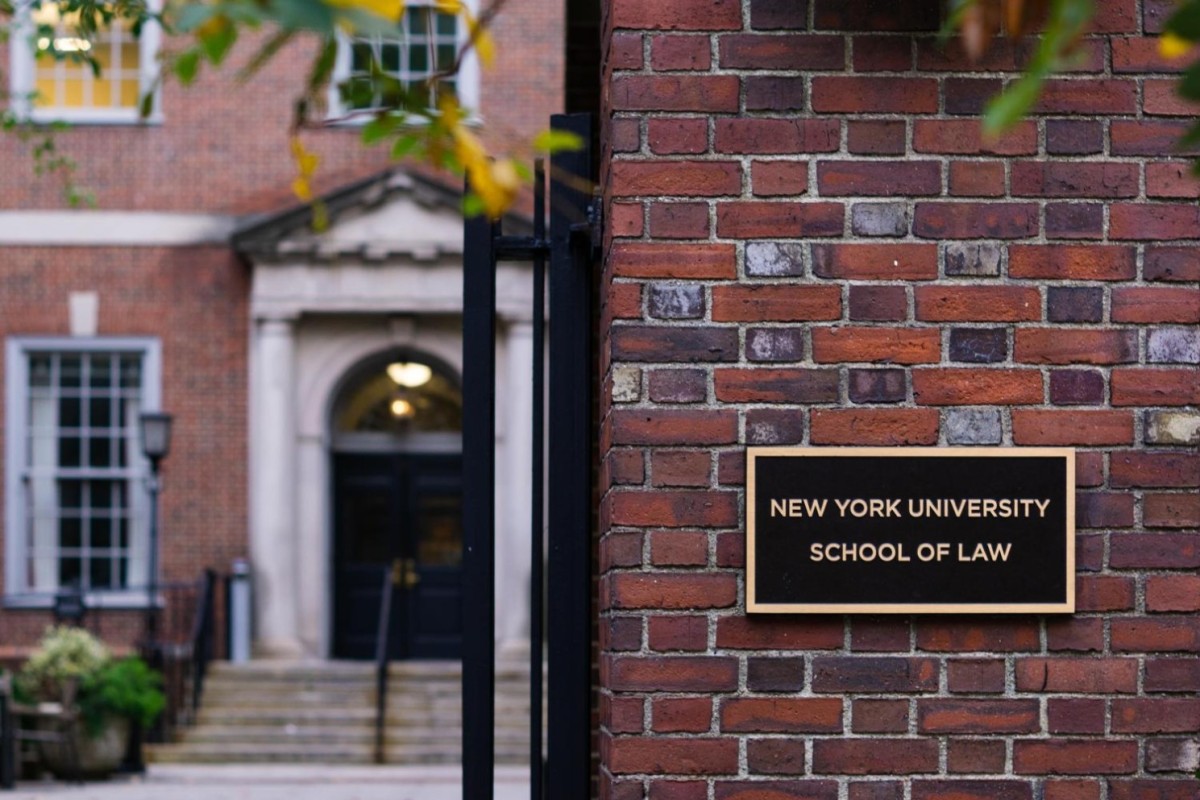A first-year law student recently filed a class-action complaint against NYU, accusing the university and its Law Review of discriminating on the basis of race and sex. The student, an anonymous white heterosexual male, is claiming the NYU Law Review — an academic law journal at the university — gives “unlawful and discriminatory preferences” to women, racial minorities and members of the LGBTQ+ community when selecting its editors.
In the complaint, the student — who is going by the pseudonym John Doe and intends to apply for the NYU Law Review next summer — is alleging that the journal has violated federal law by using race and sex preferences to select its members in recent years. The lawsuit cites the U.S. Supreme Court’s decision to strike down race-sensitive college admissions practices this past June, which NYU leadership has called “a step backwards.”
America First Legal — a conservative legal group led by former Trump administration adviser Stephen Miller — filed the lawsuit against NYU on Oct. 27. More recently, the court ordered that the plaintiff could remain anonymous through case proceedings, but said that NYU may seek to disclose the student’s identity once the case is assigned to a judge. Gene Hamilton, an attorney for Doe, declined to comment on this story.
“Federal law prohibits universities that accept federal funds from discriminating on account of race or sex,” the complaint reads. “The New York University Law Review has flouted these requirements by openly using race and sex preferences to select its members and editors.”
An NYU spokesperson told WSN that only the plaintiff has presented an argument to the court so far. The university has faced similar lawsuits in the past, with the Texas group Faculty, Alumni, and Students Opposed to Racial Preferences — led by conservative lawyer Jonathan Mitchell — having sued the NYU Law Review and the Harvard Law Review for allegedly considering race and sex in 2018. The suit was dismissed in 2021 after the court argued the plaintiffs failed to demonstrate injuries to the group’s members.
In his complaint, Doe alleged that the NYU Law Review instructs all applicants to submit a personal statement “to enable it to fill this ‘diversity’ quota.” The suit also claims that in response to the Supreme Court’s decision, the academic journal “changed its website in an attempt to obscure the details of its membership-selection process.” The NYU Law Review did not respond to multiple requests for comment.
“The Law Review’s website makes clear that ‘diversity’ remains a prime consideration in the selection of members, boasting that the Law Review seeks a ‘diverse staff of editors,’” the complaint reads. “The NYU Law Review is using these ‘statements of interest’ and resumes to give preferential treatment to women, non-Asian racial minorities, homosexuals and transgender people when selecting its members. And the Law Review intends to continue these unlawful and discriminatory practices until it is enjoined from doing so.”
In his complaint, Doe argues that NYU is violating Title VI and Title IX of the Civil Rights Act — which prohibit discrimination on the basis of race and sex, respectively — by allegedly continuing to consider race and sex when selecting editors for the journal.
If the court rules in Doe’s favor, the NYU Law Review could be forced to establish a new selection policy that is based “exclusively on academic merit” and that excludes race, sex, sexual orientation or gender identity in the application process. In order to move forward, the case must be assigned to a district judge.
Contact Yezen Saadah at [email protected].





















































































































































